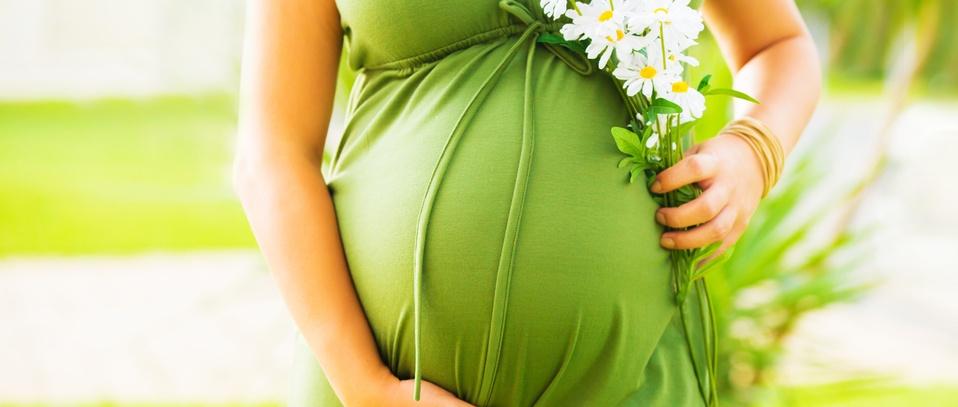
Our top tips for coping with hot weather and pregnancy
Peer reviewed by Dr Colin Tidy, MRCGPLast updated by Lynn StephenLast updated 30 Jul 2025
Meets Patient’s editorial guidelines
- DownloadDownload
- Share
- Language
- Discussion
Being pregnant isn't easy, but it can be even more challenging in the summer. With the heat and humidity - and the swollen legs and feet - hot weather and pregnancy aren't exactly the perfect match. So here are some top tips to stay cool and comfortable when the temperature rises outside.
In this article:
You may feel hotter than normal when your pregnant, which might be a result of your core body temperature rising slightly. So being pregnant in hot weather can make you feel hotter than usual and more uncomfortable.
Continue reading below
Why does pregnancy make you warmer?
In pregnancy, an increased metabolism, elevated levels of hormones such as progesterone and changes to circulation can also make you feel warmer. When you are expecting, the volume of blood in the body increases by up to 50%. The blood vessels expand slightly to allow for this change and move closer to the surface of the skin, which can make pregnant women feel warmer. Mix hot weather and pregnancy hormones together and you'll know how uncomfortable this can be.
In the later stages of pregnancy, carrying around a bump can lead to an increased workload on the body as a result of the extra weight too. Hot, humid weather can also exacerbate common pregnancy issues such as exhaustion and nausea, which can be unpleasant.
Swelling in hot weather and pregnancy
Ankles, feet, and fingers can swell in pregnancy, as your body retains more water than usual. It's often worse during hot weather, at the end of the day and further into your pregnancy.
A swollen face, ankles and wrists may be more likely on a hot day they but can also be a sign of pre-eclampsia. This is a condition which causes high blood pressure in pregnancy and after labour and can be serious if not treated. If they persist, let your doctor or midwife know.
Is hot weather dangerous in pregnancy?
Hot weather brings the usual risks associated with higher temperatures, such as dehydration, fatigue, heat exhaustion, fainting, or even heatstroke. Signs of heat exhaustion include:
Headaches.
Dizziness.
Confusion.
Feeling sick.
Excessive sweating.
Fast breathing.
Being very thirsty.
High temperature.
Heat exhaustion is not usually serious if you can cool down within 30 minutes. However, heatstroke is a medical emergency and the symptoms include:
Severe headaches.
Feeling or being sick.
Shallow and fast breathing.
Muscle weakness.
Fainting.
Confusion
Call for an ambulance or seek medical help as soon as possible if you have these symptoms.
Continue reading below
How to keep cool in hot weather and pregnancy
Stay hydrated
When you have morning sickness, it's easy to become dehydrated. If you feel nauseous or sick, try sipping water regularly throughout the day - this will help you reach the necessary daily water intake.
If you are pregnant in summer, make sure you're drinking plenty of water to help prevent dehydration. The guidelines suggest you should aim for six to eight glasses of water and other liquids each day to replace normal water loss - around 1.2 to 1.5 litres.
You will need to increase the amount of water that you drink in warmer weather, as you will sweat more. Try to get into the habit of bringing a cold water bottle with you wherever you go - besides keeping you hydrated, it should cool you down too.
Eating food with high water content, such as watermelon, can also help prevent dehydration.
Wear loose clothing
To feel more comfortable when going through pregnancy in hot weather, wear loose clothes made of breathable fabrics, such as cotton or linen. Loose clothes can help air circulate next to the skin, whereas tight clothes can feel constrictive and make you feel even warmer. Also be sure to wear comfortable shoes to alleviate the effects of foot swelling.
Splash yourself with water
Cool baths or showers, and sponging or splashing yourself with cool water can help on hot days if you're struggling. Going for a swim can also help cool you down - low-impact exercise is safe throughout pregnancy. If your feet are swollen from the heat, soak them in a bowl of water containing ice.
Try taking a water spray bottle or small handheld fan with you to cool you down if it's really hot, or resting in a room with air conditioning. You can also consider using a desk fan for work or home.
Adjust your exercise plan
You might need to adjust your exercise plan while pregnant in summer, particularly if it is hot outside. If your body temperature rises above 39.2°C in the first 12 weeks of pregnancy, your baby has a slightly increased risk of birth defects, according to the NCT. However, you are not likely to get this hot unless you have a fever or you exercise in a very hot and humid climate that you aren't used to.
Stay in the shade
If it’s hot out, take the opportunity to rest up, as pregnancy can be tiring even when it's cool. When tackling hot weather and pregnancy, put your feet up as much as possible, avoid the sun from 11 am until 3 pm and if you are out and about, wear sunscreen, sunglasses and a wide brimmed hat. If you do feel faint or unwell, try to find a cool and shady spot to sit or lie down in and drink plenty of water.
Patient picks for Diet and lifestyle

Pregnancy
Which pregnancy vitamins do I really need?
With so many pregnancy vitamins on the market, it can be hard to know where to begin. So which vitamins do you actually need during pregnancy and which are less essential?
by Abi Millar

Pregnancy
Pregnancy insomnia: how to get better sleep while pregnant
Pregnancy can be a challenging time, especially if you are not getting enough rest. According to one study, 44% of pregnant people experienced insomnia during the first trimester. Fortunately, there are steps you can take to help alleviate pregnancy insomnia and make the experience as stress-free as possible.
by Emily Jane Bashforth
Continue reading below
Article history
The information on this page is peer reviewed by qualified clinicians.
Next review due: 30 Jul 2028
30 Jul 2025 | Latest version
5 Aug 2021 | Originally published
Authored by:
Lydia Smith

Ask, share, connect.
Browse discussions, ask questions, and share experiences across hundreds of health topics.

Feeling unwell?
Assess your symptoms online for free
Sign up to the Patient newsletter
Your weekly dose of clear, trustworthy health advice - written to help you feel informed, confident and in control.
By subscribing you accept our Privacy Policy. You can unsubscribe at any time. We never sell your data.